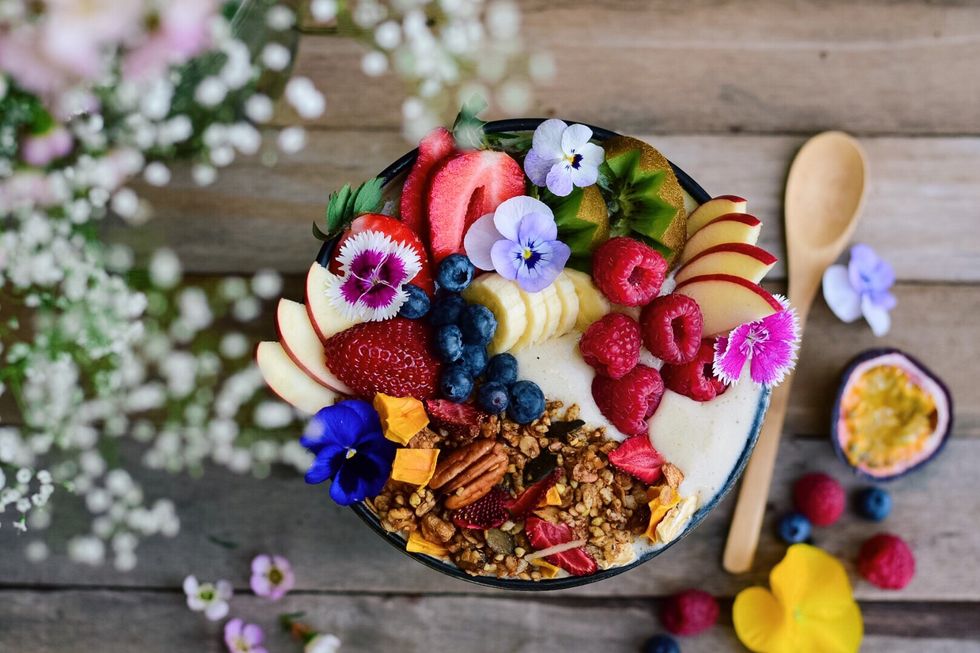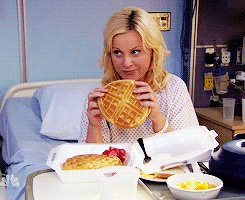You know it's "goodbye hibernation-holiday body, hello spring break-bikini body" season when the gym is literally packed to its maximum capacity on a freezing Tuesday morning in mid-January. It seems that everyone simultaneously looked into their mirror and discovered that they had turned into a much fluffier, lethargic version of themselves. Hence, everyone rushed to their local gym to watch the excess pounds magically disappear.
I am here to burst your bubble. Regardless of how often you work out, or how intense your cardio sessions are, your body is not going to change unless your diet changes with it. As you might've heard it described as before, the best way to a healthy body is 90% what you eat and 10% physical activity. While those statistics may not be very accurate, they do hold some truth.
Healthy diets do not involve cutting your portion sizes in half or removing all carbohydrates from your diet. You don't have to limit your meals to juice cleanses and celery in order to have a healthy, lean, toned body - and please NEVER think that you should stop eating entirely in order to shed a few pounds. Sorry, I digress.
The point is, you can eat tons of delicious, filling foods and still lose weight; this means that it is not simply okay to include carbohydrates, fats, and proteins in your diet, but it is imperative for a healthy lifestyle.
However, I know from experience that when hunger strikes, it is easy to raid the nearest pantry in sight and eat your body weight in snacks - but there is hope for us hopeless snackers. As you begin this journey towards a balanced diet, here are a few ideas to minimize your snacking, and save your sweet tooth from binge-eating 8 ounces of Ben and Jerry's half-baked ice cream.
1. DRINK WATER.
I know it seems like I'm stating the obvious, but the importance of staying hydrated cannot be emphasized enough. Often times, your body is telling you that it needs more water, but this is often mistaken as a state of hunger. Next time that you're feeling hungry shortly after a meal, try drinking a glass or two of water - your hunger will most likely diminish.
2. Take advantage of veggies.
I currently live in a dorm, where my bedroom is the same place that I keep all of my snacks. I find it incredibly easy to feel snacky whenever I'm bored or trying to procrastinate homework, making it super tempting to just reach over and eat an entire bag of nut mix. Instead of succumbing to boredom binging, reach for some baby carrots or slice up a cucumber to keep your calories low, but your hunger suppressed.
3. Eat healthy fats in every meal.
Don't be afraid of the word "fats!" Healthy fats include things like avocados, nuts, olive oil, coconut oil, salmon, edamame, and so much more. By including a healthy fat into each one of your meals or snacks, your stomach stays much fuller for much longer. Find a healthy fat that you enjoy, and try to eat it every day.
4. Never skip breakfast.
Fun fact: obesity and breakfast are actually inversely correlated - so skipping the "most important meal of the day" isn't actually doing you any favors. By eating a nutrient-dense breakfast, you are far less likely to become hungry between meal times; therefore, you're less likely to snack on unhealthy foods. Eggs are an amazing source of amino acids and protein, fruits contain natural sugars to satisfy your sweet tooth, and oats are rich in fiber and antioxidants that will keep your stomach satisfied.
5. Satisfy your sweet tooth...in a healthy fashion.
I have a confession... chocolate is my absolute, ultimate weakness. I'm obsessed with it. Let me just tell you - vegan hot chocolate saved my LIFE. Here's the recipe: mix 1/2 cup of almond milk with 1/4 cup of water, add in a spoonful of cocoa powder and another of coconut oil, and then sweeten your mixture with honey or another natural sugar. BANG. DELICIOUS. You're welcome. Other options of satisfying your sweet tooth include fruits by themselves, fruits in smoothies, or a bit of dark chocolate.




















